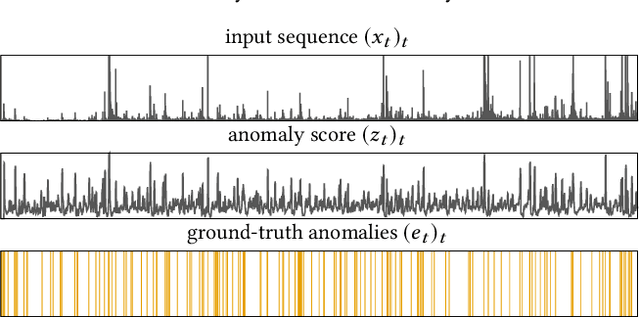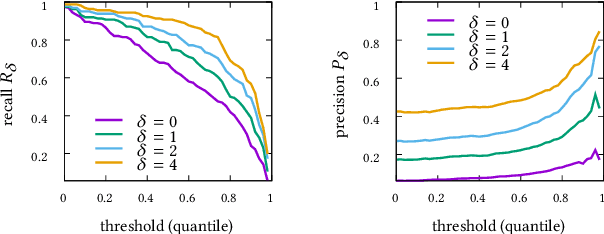Statistical Evaluation of Anomaly Detectors for Sequences
Paper and Code
Aug 13, 2020



Although precision and recall are standard performance measures for anomaly detection, their statistical properties in sequential detection settings are poorly understood. In this work, we formalize a notion of precision and recall with temporal tolerance for point-based anomaly detection in sequential data. These measures are based on time-tolerant confusion matrices that may be used to compute time-tolerant variants of many other standard measures. However, care has to be taken to preserve interpretability. We perform a statistical simulation study to demonstrate that precision and recall may overestimate the performance of a detector, when computed with temporal tolerance. To alleviate this problem, we show how to obtain null distributions for the two measures to assess the statistical significance of reported results.
 Add to Chrome
Add to Chrome Add to Firefox
Add to Firefox Add to Edge
Add to Edge